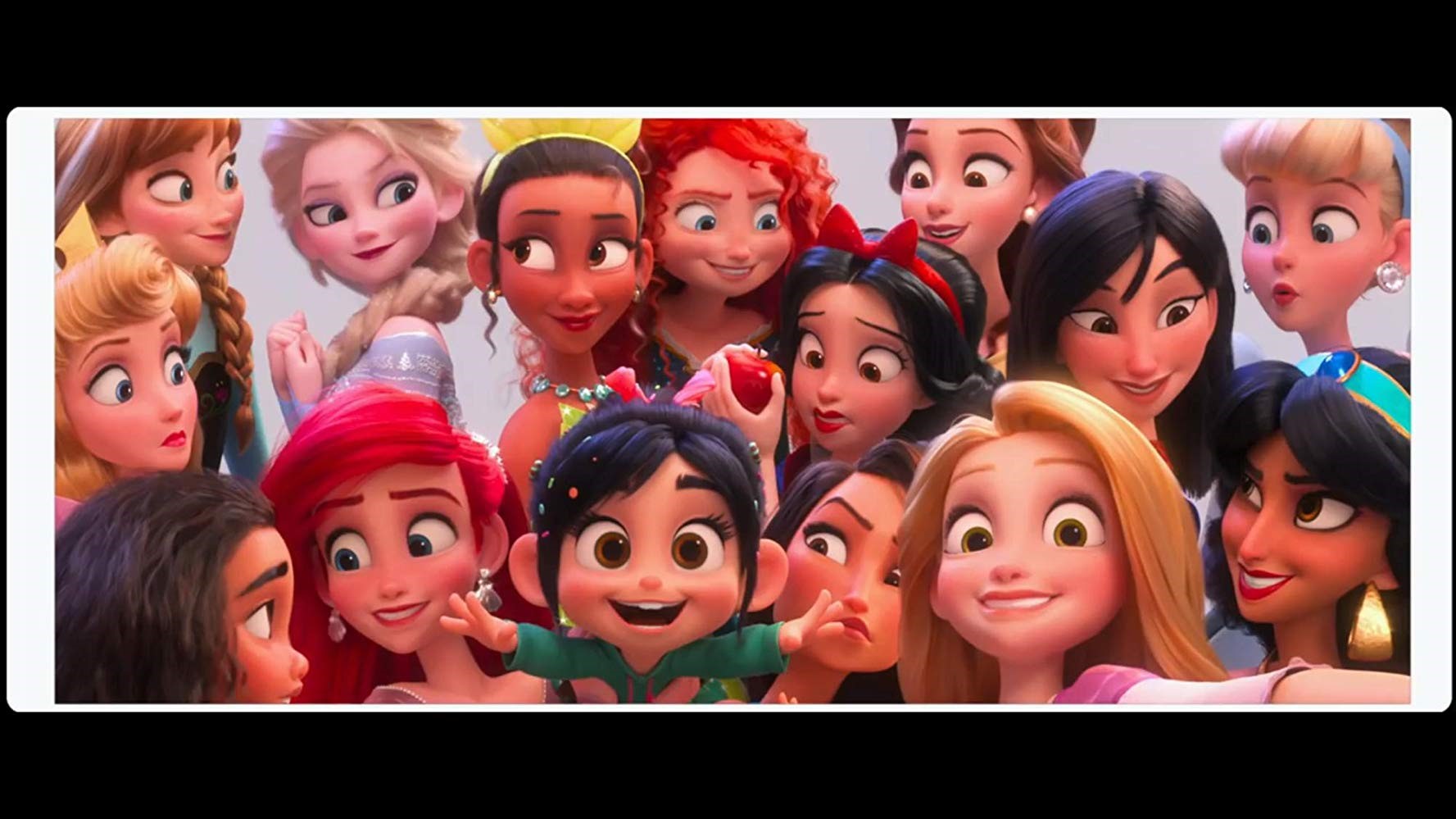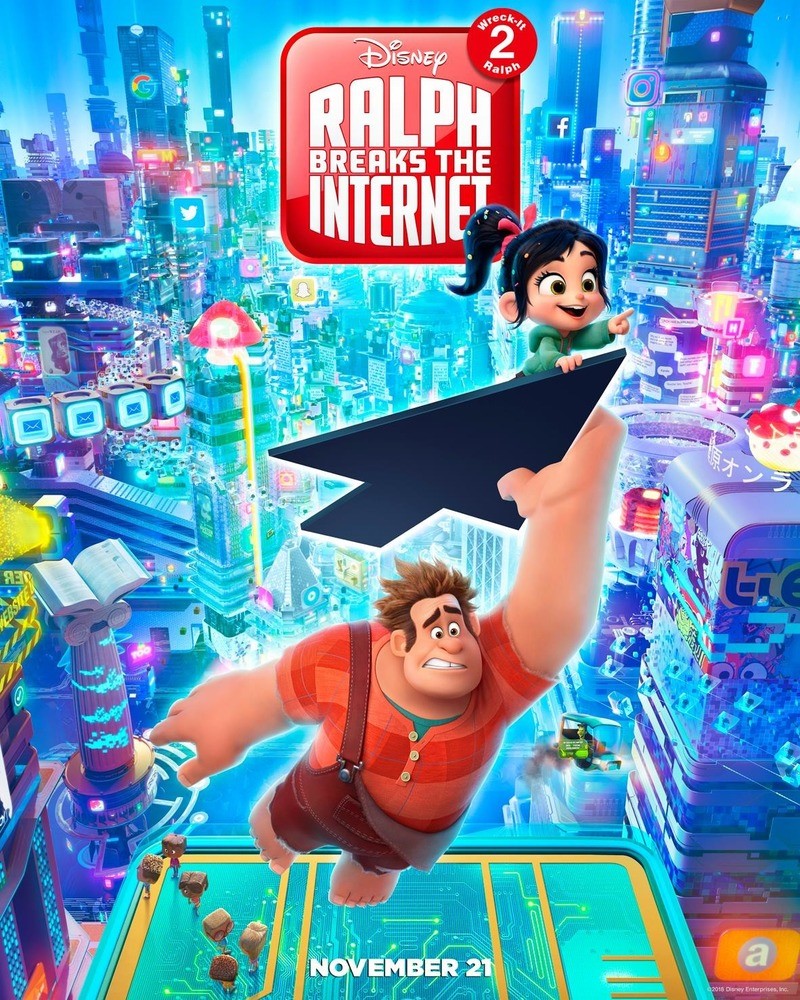Author: Cameron Fairchild
© 2018 – Walt Disney Studios
If there’s one thing Ralph Breaks the Internet, the sequel to 2012’s Wreck-It Ralph, understands about the Internet, it’s that for all its grand ambition as a device for interconnectivity, it can also a pervasive distraction.
Ralph happens upon this concept perhaps by accident, because most of its overstuffed runtime sees Ralph (John C. Reilly) and Vanellope Von Schweetz (Sarah Silverman) moving frenetically from one website to the next in pursuit of a MacGuffin, without much cohesion before the third act rights the ship. For all that time spent, its observation of the Internet is never entirely critical or cutting, and by the time this Disney film wanders over to OhMyDisney.com, it starts to feel more than a tad too indulgent. A few good jokes come in the form of BuzzTube, the film’s YouTube analogue, and the transiency of internet popularity, provided largely through new character Yess (Taraji P. Henson), but every time the film enters a new space it takes on a new thesis. The final product feels distracted, lacking cohesion as it frenetically bounces around.

That’s not to say the film is entirely unaware, or without charm. One of the film’s best tangents has almost nothing to do with its setting, instead focusing on Vanellope’s identity as a Disney princess. Vanellope is a great, three-dimensional character, nervous and optimistic and tomboyish, and when the film compares her to other Disney princesses, it insightfully recognizes the company’s history of sexism. The classic “I want” song that defined the princess films of the Disney Renaissance and their more recent animated musicals is even given a hilarious twist by Vanellope in one of Ralph’s funniest scenes.
Furthermore, Ralph’s strongest aspect—and the closest it gets to a through line—is the relationship between Ralph and Vanellope. Ralph’s clinginess and resistance to Vanellope’s longing for change allow the film, largely through subtext if not direct invocation, to examine toxic masculinity and the way the internet allows it to thrive. Disney calling attention to its issues is nothing new—films like Moana and Frozen cover similar ground—but Ralph is perhaps its most thorough examination of sexism, and maybe the first animated film to examine how even well-meaning men can express severely damaging toxic behavior. It’s a bold choice in an otherwise tame crowd-pleaser, and one wishes it wasn’t saved only for the fringes of the film.

When it wants to be, Ralph Breaks the Internet is a sobering, mature work about how vile tendencies are amplified by the Internet’s overwhelming ability to communicate anything to everyone. The rest of the time, it’s pretty cute, beautifully animated, and certainly funny, but not every element is quite as developed as its best pieces.
CAMERON FAIRCHILD | Y’all ever seen Wreck-It Ralph? | KXSU Arts Reporter
